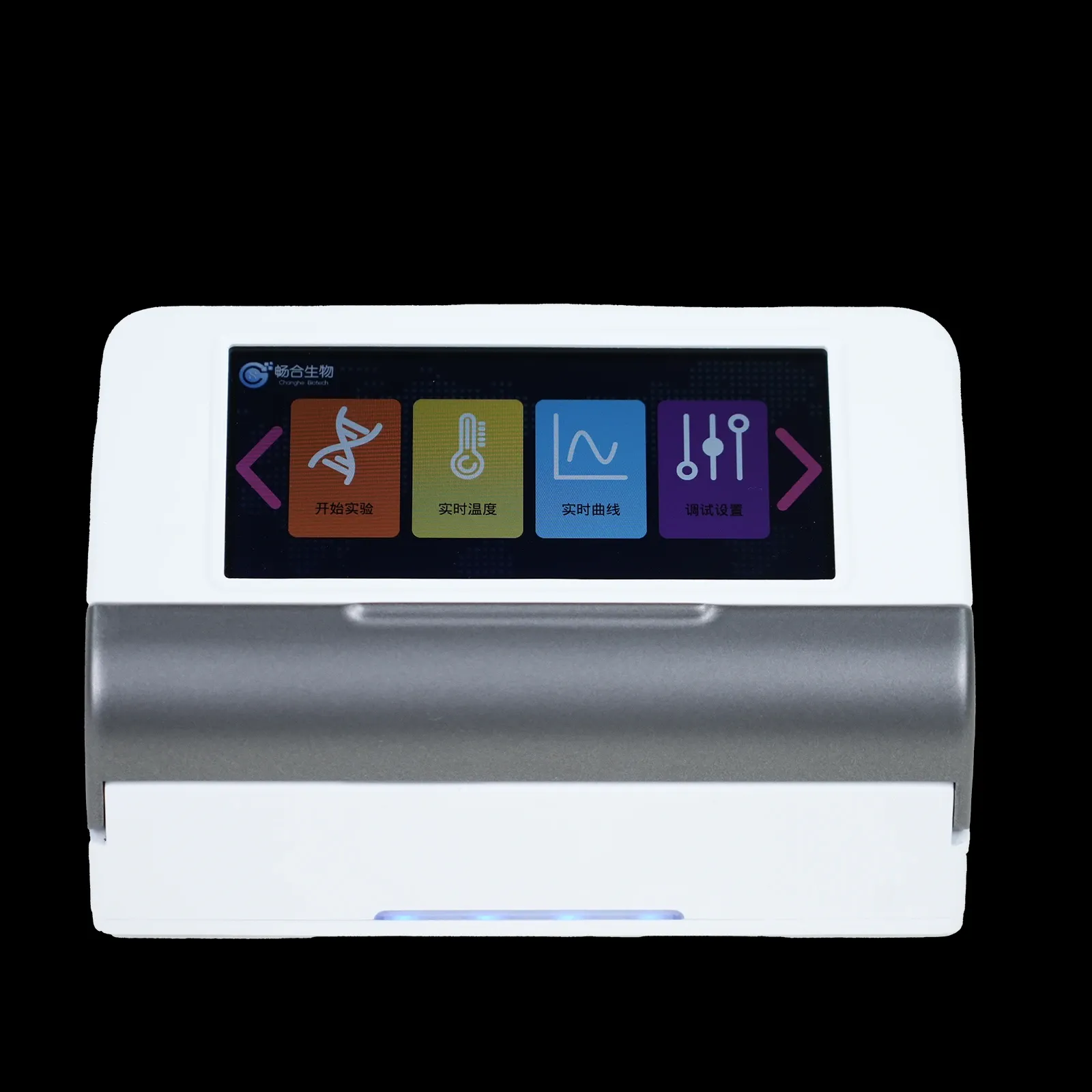
Portable PCR for Food Safety: Rapid Identification of Contaminants
The global food supply chain is a complex network where safety breaches can lead to widespread recalls, financial losses, and reputational damage. For wholesalers, ensuring the integrity of bulk shipments is critical, yet traditional lab-based testing methods often lag behind the speed of modern logistics. Enter portable PCR technology—a breakthrough enabling rapid, on-site detection of pathogens, allergens, and other contaminants. By integrating PCR identification into wholesale operations, businesses can mitigate risks, comply with regulations, and safeguard their supply chains with unprecedented efficiency.

PCR Identification: The Precision Tool for Contaminant Detection
PCR identification has long been the gold standard for detecting biological contaminants due to its sensitivity and accuracy. Unlike culture-based methods, which can take days, PCR amplifies trace amounts of DNA or RNA from pathogens like Salmonella, E. coli, or Listeria, delivering results in hours. For wholesalers handling perishables or imported goods, this speed is transformative.
In bulk food shipments, even minor contamination can escalate into a crisis. Portable PCR devices leverage PCR identification to screen samples at critical checkpoints—such as warehouses or distribution hubs—ensuring tainted batches are flagged before entering the supply chain. For example, a wholesaler receiving frozen seafood can test for Vibrio species on-site, avoiding costly delays from lab submissions.
By focusing on PCR identification, wholesalers gain a proactive defense against recalls, protecting both their bottom line and consumer trust.
PCR in Diagnostics: From Lab Bench to Field Testing
Historically, PCR in diagnostics was confined to laboratories, requiring specialized equipment and trained technicians. However, advancements in microfluidics and automation have democratized this technology. Modern portable PCR systems are compact, user-friendly, and capable of performing multiplex assays—testing for multiple contaminants simultaneously.
For wholesale operators, this shift is revolutionary. Consider a produce distributor receiving pallets of leafy greens: instead of waiting days for lab results, staff can use handheld PCR devices to check for Norovirus or pesticide residues within hours. This immediacy reduces the window of uncertainty, allowing faster decision-making.
PCR in diagnostics also supports compliance with international safety standards. For instance, exporters can use portable PCR to verify compliance with EU or USDA regulations before shipping, minimizing rejection risks at borders.
Portable PCR: Redefining Safety in Wholesale Logistics
The rise of portable PCR devices has turned supply chain safety into a real-time endeavor. These battery-powered tools are designed for harsh environments, from refrigerated storage units to remote farms. Their applications in wholesale are vast:
Batch Testing at Scale: Screen entire truckloads of meat or dairy for pathogens before distribution.
Allergen Management: Detect trace amounts of gluten or nuts in bulk ingredients.
Fraud Prevention: Identify mislabeled species in seafood or meat products.
A poultry wholesaler, for example, could use portable PCR to test for avian influenza at multiple stages—farm, processing plant, and warehouse—ensuring compliance across tiers.
Streamlining Wholesale Operations with Portable PCR
Adopting portable PCR isn’t just about safety—it’s about operational efficiency. Traditional testing often forces wholesalers to hold inventory for days, incurring storage costs and delaying deliveries. With on-site PCR, results are available in 1–2 hours, slashing holding times and accelerating turnover.
Bulk coffee importers, for example, face stringent EU regulations on ochratoxin A levels. By using portable PCR at origin sites, they can pre-screen shipments, ensuring compliance before they even leave the port. This proactive approach minimizes customs delays and reduces the need for buffer stock.
Furthermore, PCR identification supports sustainability goals. By preventing contaminated batches from entering the supply chain, wholesalers reduce waste and align with eco-conscious buyer demands.
FAQ: Addressing Key Questions About Portable PCR in Wholesale
How does portable PCR compare to traditional lab-based testing?
Portable PCR offers comparable accuracy but operates in a fraction of the time.
What contaminants can portable PCR detect?
These devices identify bacterial pathogens (e.g., Salmonella), viruses (e.g., Hepatitis A), allergens (e.g., peanuts), and even genetically modified organisms (GMOs). Customizable assays allow wholesalers to target specific risks.
Is portable PCR cost-effective for large-scale operations?
Yes. Although initial investments are higher than lab fees, portable PCR reduces long-term costs by preventing recalls, minimizing waste, and avoiding regulatory penalties. Bulk testing further lowers per-unit expenses.
How user-friendly are portable PCR devices for non-experts?
Modern systems feature intuitive interfaces, pre-loaded assays, and automated workflows. Training programs from manufacturers ensure staff can operate devices with minimal supervision.
Can portable PCR integrate with supply chain management systems?
Absolutely. Many devices sync with cloud platforms, enabling real-time data sharing across procurement, logistics, and quality assurance teams—a critical feature for multinational wholesalers.
By adopting portable PCR, wholesalers can transform food safety from a reactive chore into a strategic advantage. In an era where speed and accuracy define competitiveness, this technology isn’t just an option—it’s a necessity.
-
Regulatory Standards for Canine PCR Test in Wholesale MarketsNewsAug.05,2025
-
Navigating Bio Sampling Challenges in Extreme EnvironmentsNewsAug.05,2025
-
Integrating Distemper PCR Test into Feline Wellness ProgramsNewsAug.05,2025
-
Innovations in Mould Detection DeviceNewsAug.05,2025
-
Biological Sampler in Hospital Settings: Tracking Nosocomial InfectionsNewsAug.05,2025





